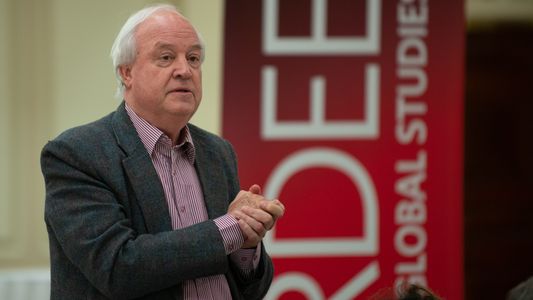Heine Says Latin America-China Ties Will Withstand U.S. Pressure
Professor Jorge Heine, research professor at the Pardee School of Global Studies, recently penned a letter to the editor of the Financial Times, Michael Stott about the latter’s article titled “China will struggle to gain from changed US-LatAm trade terms.” Heine argued that Latin America and China’s relationship will thrive despite the Trump administration’s tariff war and other aggressive trade policies.
To support his argument, the professor particularized several examples of the growing trade and investment endeavors between the two regions. The most prominent one would be the recently held China-CELAC Forum which amassed leadership from 33 Latin American and Caribbean countries in Beijing including President Luiz Inácio Lula da Silva of Brazil, President Gabriel Boric of Chile, and President Gustavo Petro of Colombia.

“Petro, the acting chair of CELAC, announced ahead of the forum that Colombia, long considered the U.S.’s ‘best friend’ in Latin America, would sign up to China’s Belt and Road Initiative,” said Heine. “Petro’s main priority is Colombia’s energy transition, an area in which Chinese companies play a leading role — in the manufacturing of e-vehicles, in the production of green hydrogen, and in solar and wind energy.”
He also highlighted that President Lula has signed 37 bilateral cooperation agreements with President Xi Jinping last year and is working closely with China for the upcoming BRICS and COP30 summits hosted by Brazil. Likewise, China is vital to President Boric because it is Chile’s number one trading partner as well as a fellow advocate for multilateralism.
The China-CELAC trade undertakings have already surpassed $500 billion in 2024 and are expected to generate $750 billion by 2035. According to Heine, these solid figures indicate that “China-CELAC cooperation in the energy transition, as well as in lowering the region’s infrastructure deficit, is likely to continue and, yes, draw China and Latin America closer together.”
Prof. Heine’s full letter to the Financial Times editor can be accessed here.
Jorge Heine is a research professor at the Frederick S. Pardee School of Global Studies and an interim director at the Pardee Center for the Study of the Longer-Range Future. He was the former ambassador of Chile to China, India, and South Africa and also served as cabinet minister in the Chilean government. Heine has written 18 books, including The Non-Aligned World: Striking Out in an Era of Great Power Competition (2025) and Latin American Foreign Policies in the New World Order: The Active Non-Alignment Option (2022) that meticulously explore the concept of active non-alignment, providing insights on how the Global South leadership can navigate the changing diplomacy landscape amid the U.S.-China rivalry.
To learn more about Prof. Heine’s scholarly pursuits and accomplishments, visit his faculty profile.